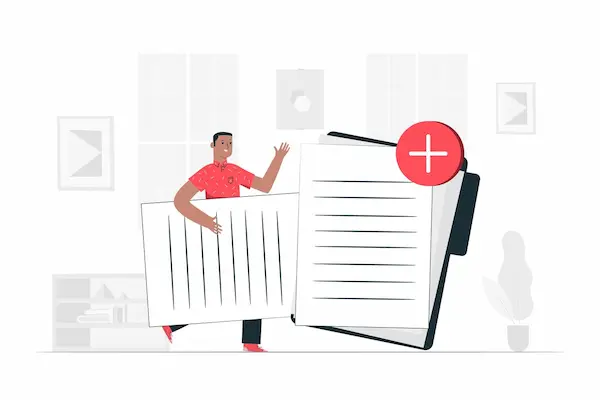Liability Insurance in Dubai
Get the Best Insurance Plan that fits for Your Need

Get a Quote for Insurance
What is Liability Insurance?
However, liability insurance does not cover intentional harm or damages to the policyholder’s own property or person. The policy ensures that businesses and professionals can manage certain operational risks with minimal impact on their finances.

What is the Main Purpose of Liability Insurance?
The primary objective of liability insurance in Dubai is to provide financial protection to individuals and business units against claims of injury or property damage suffered by third parties due to the insured’s actions, products, services, or negligence.
Further, a liability insurance policy compensates the insured for the legal expenses, court fees, and settlement costs if a lawsuit is filed. Liability insurance may also be a part of legal/contractual obligations in many regions or industries to build trust between parties and ensure compliance.
Types of Liability Insurance in Dubai
Comprehensive General Liability Insurance
A lawsuit can be filed against a business if its regular activities cause accidental injury, death, or property damage to third parties. A general liability insurance policy covers such legal claims and related expenses to defend the lawsuit. Every business that deals with the public, either directly or indirectly, must have a comprehensive liability insurance cover.
Professional Indemnity Insurance
Professionals such as doctors, lawyers, architects, accountants, financial advisors, and business consultants may face legal claims from their clients due to negligence, errors, or omissions while providing services. Professional indemnity insurance covers such legal liabilities and related expenses.
Employer’s Liability Insurance
This insurance policy covers an employer’s statutory liabilities arising due to employees’ injuries, fatalities, or illnesses at the workplace. The policy can be customized to suit the specific requirements of a business based on its nature of work and number of employees.
Management Liability Insurance
Managers often make critical decisions impacting several stakeholders of the business such as employees, customers, vendors, lenders, shareholders, and the general public. Management liability insurance covers the potential financial losses due to bad decision-making or alleged wrongdoing of managers. Certain insurance providers also extend the coverage to protect the personal assets of managers.
Public Liability Insurance
This insurance protects professionals and businesses against legal claims or financial liabilities arising due to bodily injury or property damage suffered by third parties (other than employees). These claims may arise due to normal business operations or on the business premises. Public liability insurance is critical for individuals or businesses that deal with the public, such as clinics, malls, restaurants, retail stores, etc.
Event Liability Insurance
Organizers of events such as music concerts, sports matches, exhibitions, award functions, religious gatherings, etc. may face huge financial losses due to event cancelations, material damage, and accidents. Event liability insurance compensates the organizers for such losses and also covers the legal claims of third parties affected due to the event.
Product Liability Insurance
This insurance protects the business against claims from customers if the products sold cause harm, injury, or damage to their property. The policy covers financial liabilities due to such claims and the incidental legal costs. Product liability insurance is essential for manufacturers, distributors, and retailers in the electronics, F&B, pharma, and FMCG industries.
Umbrella Insurance
Umbrella insurance is a type of insurance policy that provides coverage beyond the existing limits of other policies. The policy provides coverage for claims when the existing limits are exhausted. It may also cover claims that are excluded by other liability insurance policies. Umbrella insurance typically covers bodily injuries, property damage, legal costs, and certain personal liability claims.
Directors & Officers (D&O) Insurance
Lawsuits may be brought against directors and officers of a business due to gross negligence, conflict of interest, or release of confidential information. This insurance protects the personal assets of directors and officers against such claims when they are acting in their official capacity. It also covers the legal expenses incurred to defend the lawsuit.
Cyber Risk Insurance
This insurance policy protects a business against cybersecurity risks such as hacking, data theft, virus attacks, and data breaches. Such cyber-related incidents can result in financial losses, legal claims, and loss of reputation for any business. The policy compensates the business for the financial loss and expenses due to potential cyber-attacks.
Trade Credit Insurance
This insurance covers the payment risk associated with selling goods and services on credit. Businesses often face the risk of non-payment of invoices due to protracted delays, wilful default, or insolvency of their customers. Trade credit insurance reimburses for such losses and protects the cashflows of a business. A business entity can choose to indemnify all its buyers or a specific group of buyers by paying a nominal premium.
Third-Party Liability Insurance
This type of insurance protects the insured person against legal claims arising from third parties due to bodily injury, loss, or property damage suffered by them. The most common example of third-party liability insurance is an accident caused by a vehicle on the road. The insurance company covers the medical expenses or property damage caused by the insured person due to the accident.
What is Covered Under Liability Insurance?
- Medical expenses and compensation for bodily injuries suffered by a third party on the insured person’s premises
- Claims for damage to third-party property due to regular business activities
- Claims arising from defective products causing harm or injury to consumers
- Claims arising due to professional negligence or errors in the delivery of services
- Legal expenses and settlement costs in lawsuits filed against the insured person
- Claims arising due to incorrect or misleading information provided by the insured person
- Medical expenses of employees injured during work or suffering from any occupational illness
What is Not Covered Under Liability Insurance?
- Any injury or damage to another person or their property due to wilful misconduct or deliberate action by the insured person
- Injury, loss, or damage caused due to dangerous materials or substances
- Loss or damage resulting from natural calamities such as floods, earthquakes, cyclones, storms, etc.
- Loss or damage caused due to war, nuclear war, or acts of terrorism
- Claims of defamation, slander, or libel (not covered unless specifically stated in the policy)
- Liabilities arising primarily due to breach of contractual obligations by the insured person
- Fines, penalties, and punitive charges payable for non-compliance with law or statutory obligations
- Claims from accidents involving vehicles (covered separately under motor insurance with third-party liability coverage)
- Claims arising due to infringement of patents, copyrights, trademarks, etc.
- Loss or damage to the policyholder’s personal property or assets
How to Choose the Right Liability Insurance Policy?

Assessment of Needs
Understand the nature of your business. Then, evaluate the size and scale of your business operations. Determine whether you need general liability insurance, professional liability insurance, product liability insurance, or any other specific coverage.

Checking Legal Requirements
Check whether there are mandatory legal requirements. Many businesses require liability insurance to comply with local laws or to fulfil certain contractual obligations. Business units operating in the Dubai Free Zone may be subject to free zone regulations.

Identifying Potential Risks
This may entail analyzing workplace hazards, evaluating third-party risks of injury and property damage, gauging potential risks of negligence, errors, or omissions while rendering professional services, and so on.

Comparison of Policies and Insurance Providers
Select a reputed insurance provider with strong finances and a good track record in the settlement of claims. Examine the scope of coverage of the policy and ensure that it covers all potential risks relevant to your business. Choose a policy that offers customization based on your unique needs. Check the policy exclusions to know what is not covered.

Cost V/s Benefits Analysis
Check the premiums across insurance providers. Do not select policies solely based on lower premiums. Compare the premiums with the benefits and coverage limits. Check for out-of-pocket expenses such as deductibles. The premium should be affordable, but the coverage should be adequate for your needs.

Check Additional Features
Select a policy offering global coverage if your business has operations spread across the world. Check if the policy covers legal defence costs. Consider buying add-on covers for business interruption.

Seek Professional Guidance
Consult a licensed insurance broker or advisor who is well-versed with UAE laws and your business requirements. They can also offer customized solutions and negotiate better rates.

Policy Review and Updates
Undertake a regular review of the policy. Update the policy based on any changes or growth in your business to ensure full compliance and adequate coverage.
Frequently Asked Questions about Liability Insurance
Liability insurance protects individuals and businesses against financial liabilities arising from accidental injuries and property damage suffered by third parties. The policy also covers the legal expenses incurred to defend a lawsuit.
A common example of liability insurance is that of a customer who gets a defective product and consequently suffers some bodily injury or damage to his property. Another example is a visitor having an accidental fall and getting injured on the office premises of the insured person.
Public liability insurance covers the risk of injuries or property damage caused to any third party due to regular business activities or negligence. However, product liability insurance covers the risk of injuries or property damage caused to any third party due to defective products sold by a business.
The amount of liability insurance coverage depends on the legal compliance requirements, needs of the policyholders, and unique risks associated with any profession or business.
No. Liability insurance is not mandatory for businesses in the UAE. However, it is recommended that they have sufficient coverage to protect themselves against legal claims arising in the normal course of their operations.






